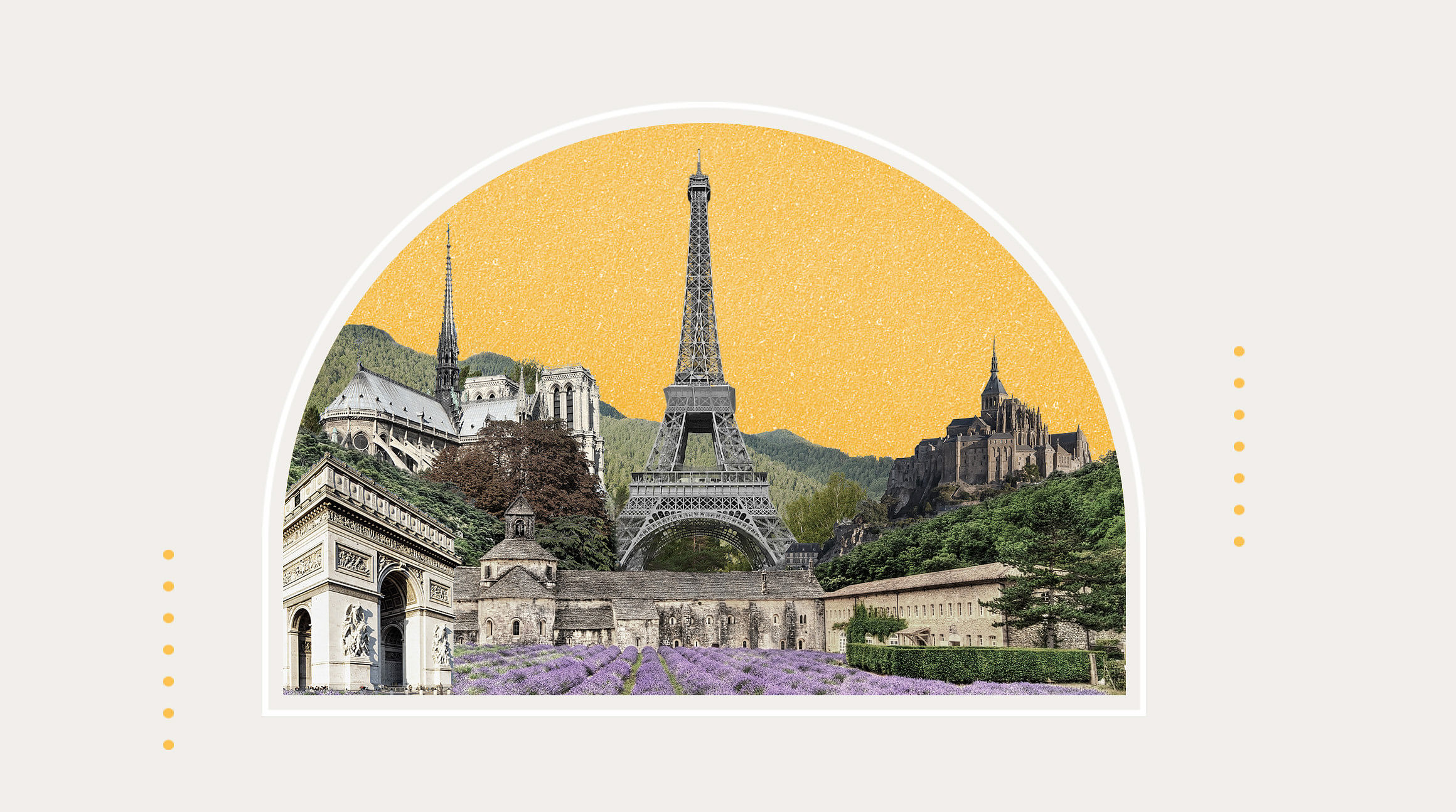
France, renowned for its rich history, vibrant culture, and exquisite cuisine, has always been a source of fascination for people around the world. From iconic landmarks to unique traditions, here are 25 fun facts about France that make it truly remarkable.
Related: France Travel Guide: Everything You Need To Know
1. The Eiffel Tower grows taller during the summer.
An intriguing phenomenon unfolds each summer at the Eiffel Tower, Paris's iconic landmark. As temperatures rise, the iron lattice structure undergoes thermal expansion, causing it to grow taller. This seasonal variation sees the tower's height increase by approximately 6 inches (15 centimeters).
2. Baguettes have precise dimensions.
The French take their bread seriously, so much so that there are laws dictating the proper length of a baguette. According to these regulations, a genuine baguette must measure between 55 and 65 centimeters in length.
3. The Statue of Liberty originated in France.
A symbol of friendship between nations, the Statue of Liberty traces its origins to France. Gifted to the United States in 1886, this majestic sculpture, crafted by Frédéric Auguste Bartholdi, embodies the ideals of liberty and democracy.
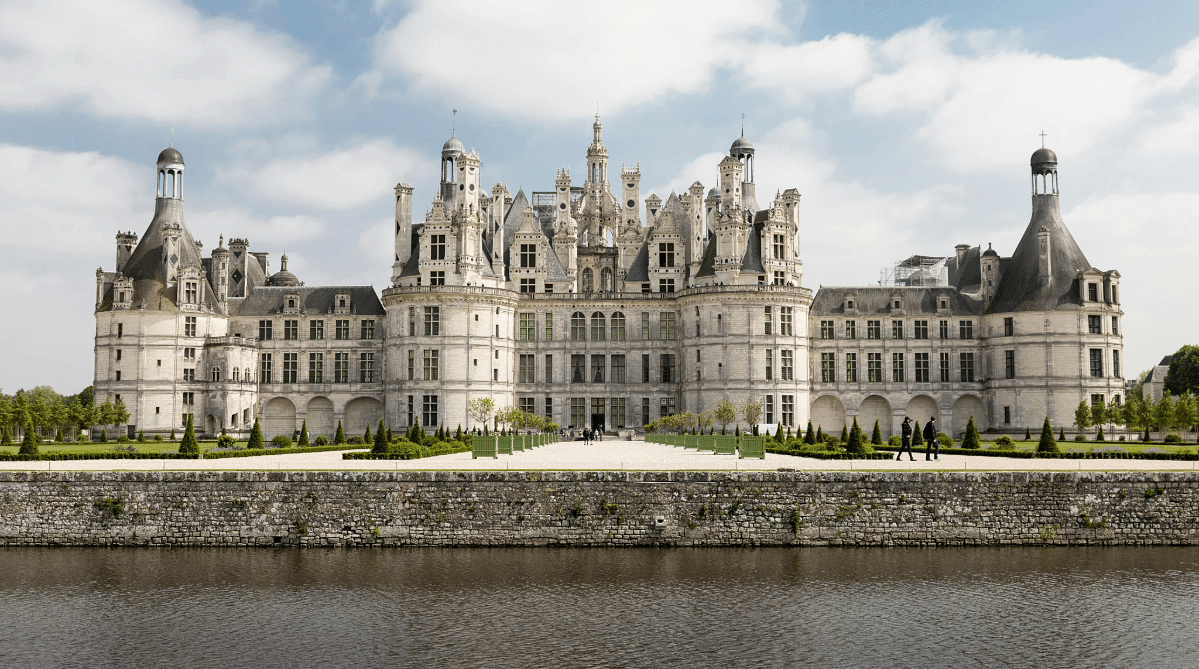 Unsplash
Unsplash
4. France has the most châteaux in the world.
France is the country with the most châteaux, boasting well over 40,000 castles and châteaux throughout its countryside. These span from the medieval fortresses to Renaissance palaces.
Related: Explore France: Top 5 Day Trips From Paris
5. Not all sparkling wine is Champagne.
Only sparkling wine produced in the Champagne region of France can be legally called 'Champagne'. The strict designation protects the style and quality of the wine that has been produced here since the times of ancient Romans.
6. France has over 1,600 types of cheese.
France has over 1,600 distinct types of cheese grouped into eight categories, "les huit familles de fromage." You could eat a different French cheese every day for over four years and never have the same one twice.
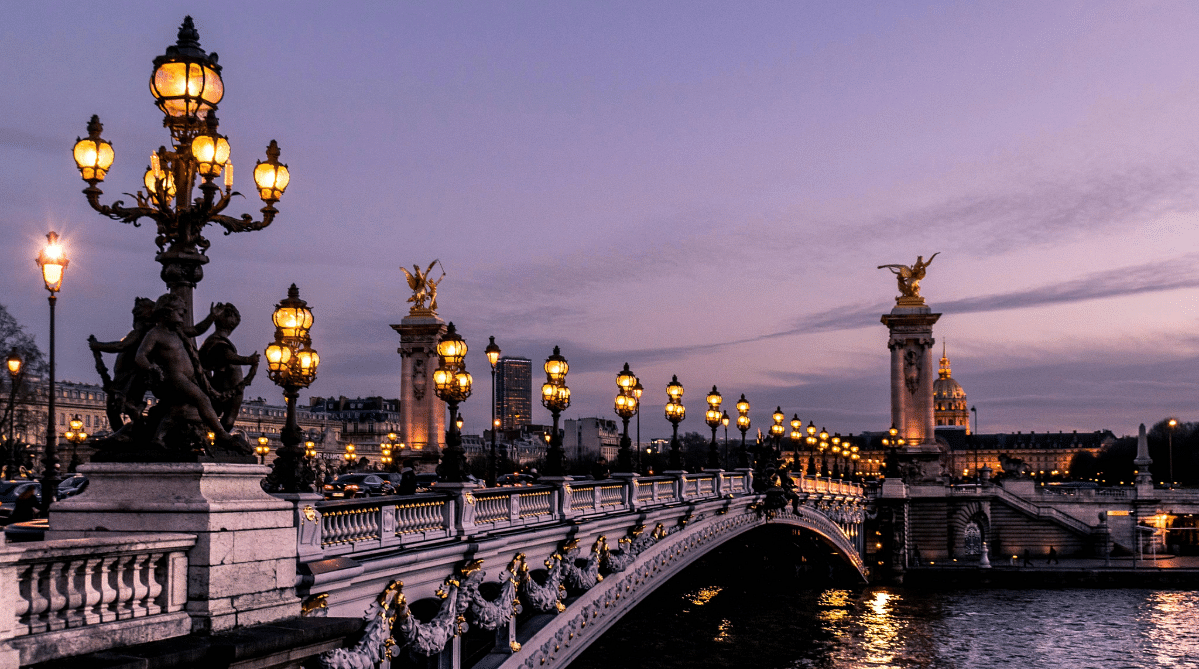 Unsplash
Unsplash
7. Paris is nicknamed the "City of Light."
Paris earned the nickname "City of Light" not just because of its critical role during the Age of Enlightenment, but also because it was one of the first large European cities to use street lighting extensively on its boulevards and monuments.
8. The world's first public transportation system originated in Paris.
Paris holds the distinction of introducing the world's first public transportation system, the omnibus, in 1662. This innovative mode of travel revolutionized urban mobility, setting a precedent for cities worldwide.
9. Louis XIX was the king of France for just 20 minutes.
Louis XIX holds the distinction of being the king of France for the shortest reign in history, lasting a mere 20 minutes. Born on March 20, 1775, he ascended to the throne following the abdication of his father, Charles X, during the July Revolution of 1830. However, his reign was swiftly cut short when he abdicated in favor of his nephew, who became King Louis Philippe I.
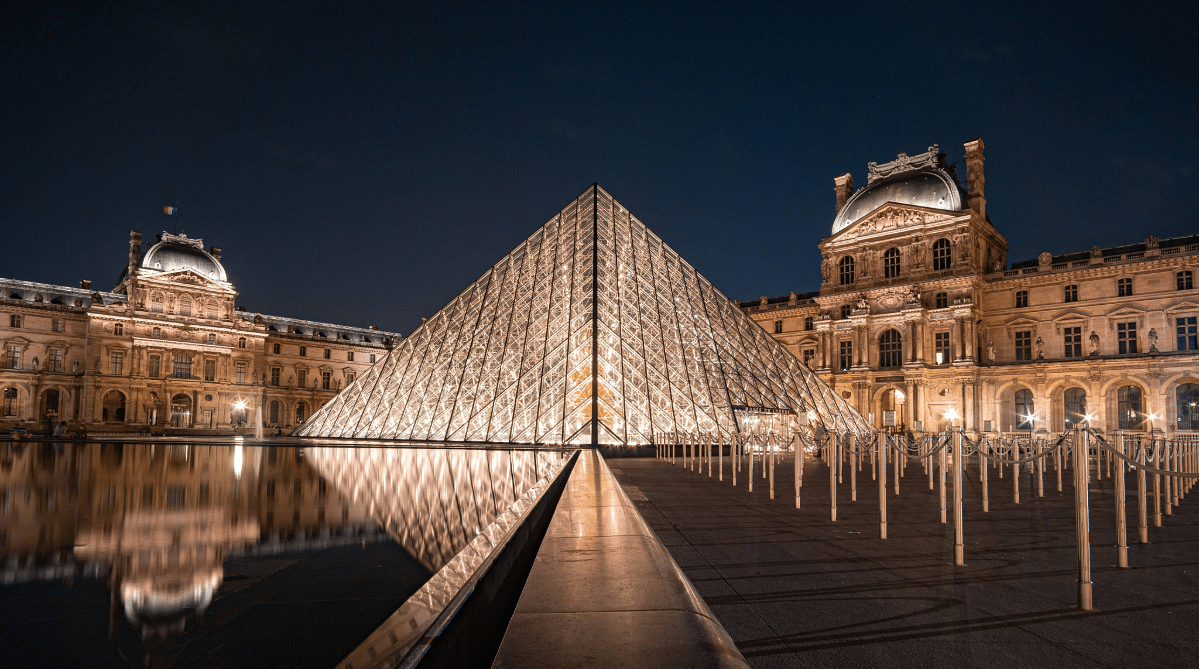 Unsplash
Unsplash
10. The Louvre is the most visited museum in the world.
The Louvre is not just a treasure trove of art and history; it's also the most visited museum in the world, attracting millions of visitors each year. Its iconic status is amplified by its diverse collection, ranging from ancient civilizations to 19th-century masterpieces, including the Mona Lisa and the Venus de Milo.
Related: The 25 Best Things To Do in Paris
11. The French invented the hot air balloon, stethoscope, pencil sharpener, and more.
France is the birthplace of countless inventions that have shaped the modern world. The hot air balloon, the stethoscope, the tin can, the pasteurization process, Braille, and even the pencil sharpener originated from the creativity and innovation of the French.
12. The first public movie screening was held in Paris.
The Lumière brothers, Auguste and Louis, pioneers in the realm of visual storytelling, hosted the world's inaugural public movie screening in Paris. On December 28, 1895, at the Grand Café on the Boulevard des Capucines, a captivated audience witnessed the Lumière brothers' revolutionary invention, the cinematograph, unveil a series of short films.
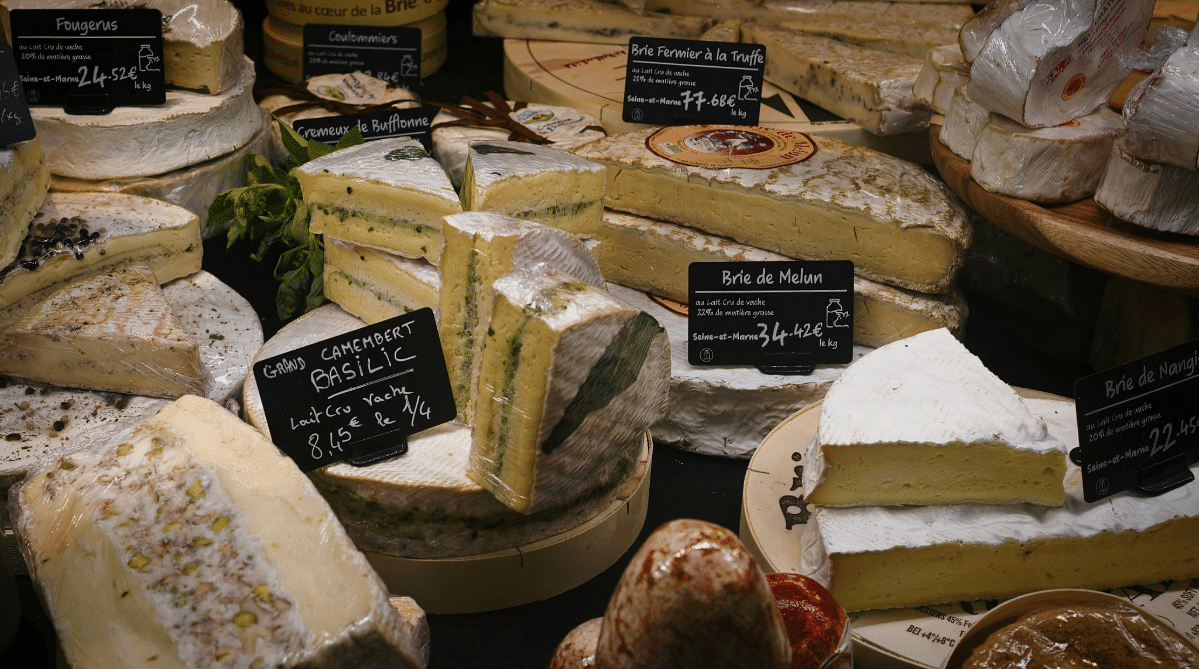 Unsplash
Unsplash
13. France produces around 1.7 million tons of cheese a year.
Producing approximately 1.7 million tons of cheese annually, France is one of the leading cheese producers in the world. This massive production caters to both local consumption and a global audience that craves the taste of authentic French cheese.
14. French cuisine is UNESCO-listed.
French gastronomy has been awarded World Heritage status by UNESCO. The meals in France are listed not merely for the food on the plate, but also for the experience of dining itself — often characterized by long, leisurely meals with high-quality, locally sourced ingredients, the careful pairing of food and wine, and the joy of shared conversation.
15. France has more Nobel Prize winners in Literature than any other country.
Fifteen French poets, novelists, and writers have won the Nobel Prize since 1901. The first French winner of the Nobel Prize in Literature was Sully Prudhomme. Other winners include André Gide, Albert Camus, and Claude Simon.
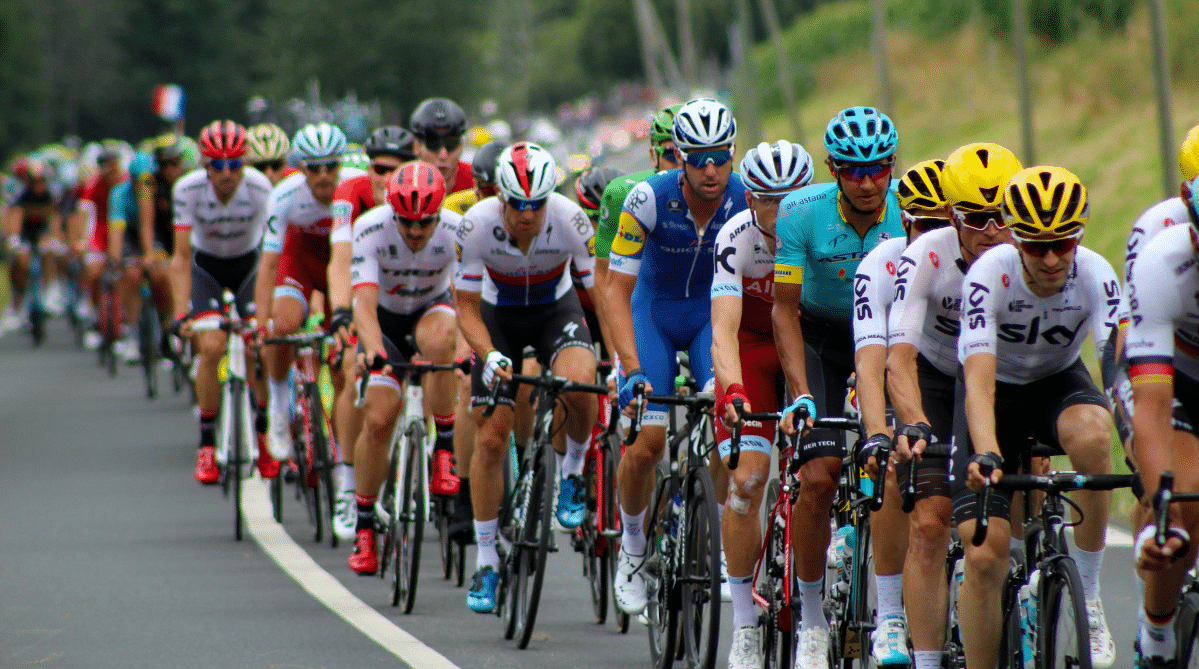 Unsplash
Unsplash
16. The Tour de France is more than 100 years old.
First held in 1903 to increase paper sales for the magazine L'Auto, the race has evolved into the most prestigious cycling event in the world. Over the decades, it has transformed into a global phenomenon, with cyclists from around the globe competing.
17. Turning a baguette upside down is considered unlucky.
In France, it’s considered unlucky to place a baguette upside down on a table or counter. This stems from an old belief linked to the baker's tradition. It was said that the baker would bake an extra loaf for the executioner, and by turning one baguette upside down, it would mark it for him.
18. The croissant was actually invented in Austria.
Despite being synonymous with French patisseries and breakfasts, the croissant was not, in fact, invented in France. This flaky, buttery pastry has its origins in Austria, where bakers in the 17th century made a bread roll in the shape of a crescent (or kipferl) to commemorate a victory against the Ottoman Empire by displaying the enemy's emblem.
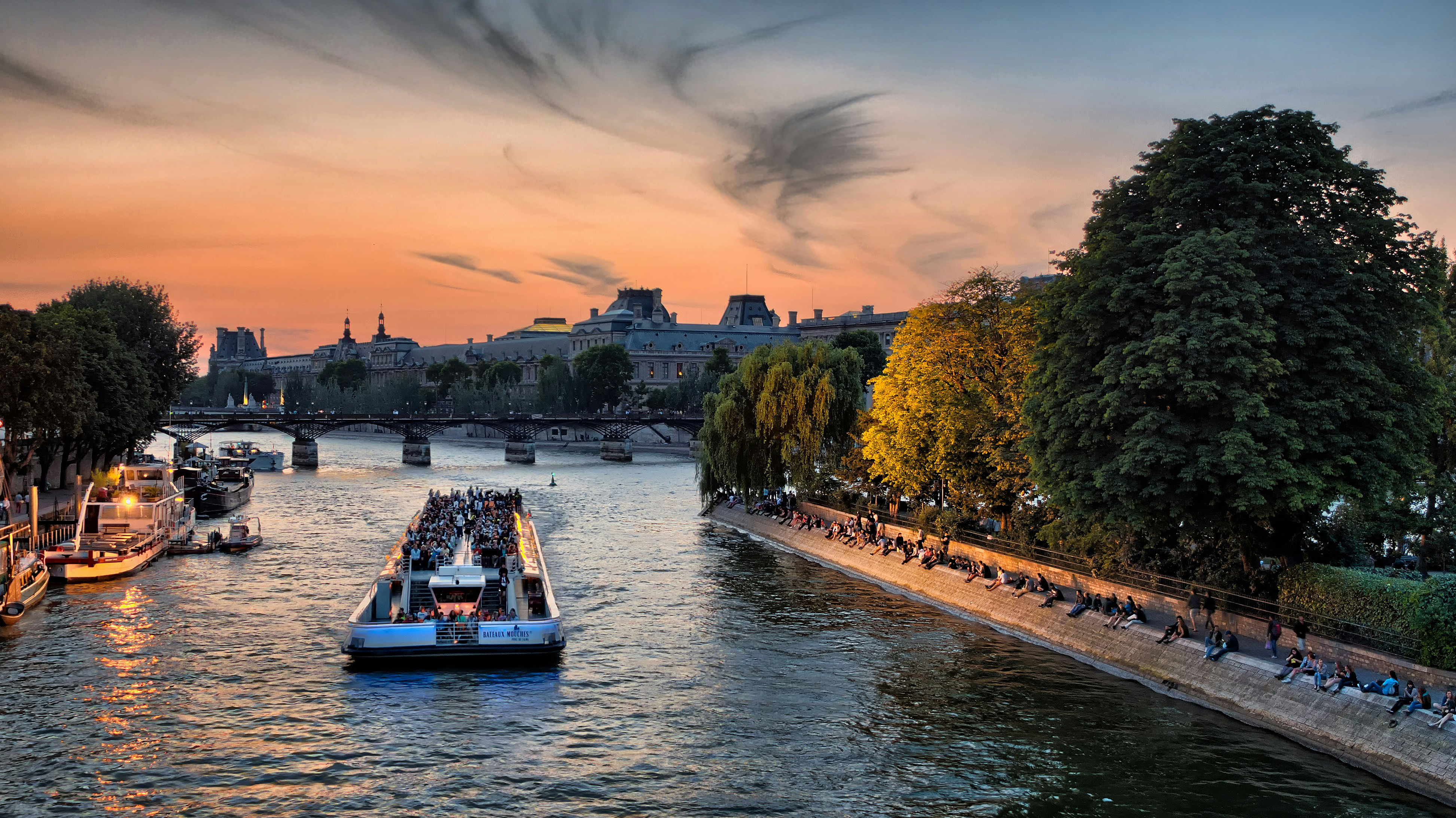 Unsplash
Unsplash
19. France is the most popular tourist destination in the world.
With 79.4 million annual visitors, France is the world's most popular tourist destination. Spain comes in second place, followed by the United States.
20. "Liberte, Egalite, Fraternite" is the national motto.
France's national motto, meaning "Liberty, Equality, Fraternity," embodies its foundational values of freedom, equality, and solidarity. Originating from the French Revolution, it symbolizes the nation's commitment to universal rights and social justice.
Are you planning a trip to France? Stay connected with a France eSIM from Airalo.



